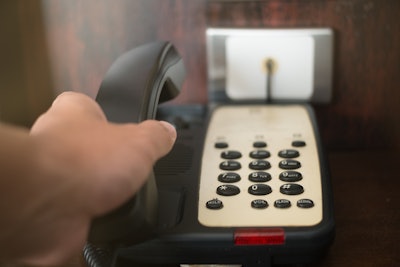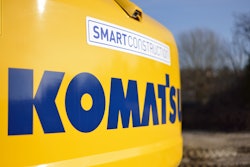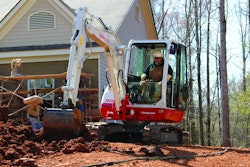 Picking up the phone is a key daily activity when it comes to special orders.
Picking up the phone is a key daily activity when it comes to special orders.We have been talking about ways to improve your fill rate and discussed how our DMS (Dealer Management System) can assist, but what else should we be doing daily beyond inventory counting?
Here’s one: require your parts counter personnel to call each customer when their special-order part arrives. I’ve seen locations that receive the special-ordered parts, enter or receipt the inventory into their DMS and then put the parts on a shelf or bin…all without calling the customer and telling them that their part is in.
 Wayne Brozek has been in product support at the dealer level for the past 30 years. In 2014 Wayne began doing consulting work with parts and service managers in North and South America. You can contact Wayne at [email protected].
Wayne Brozek has been in product support at the dealer level for the past 30 years. In 2014 Wayne began doing consulting work with parts and service managers in North and South America. You can contact Wayne at [email protected].Unfortunately, that scenario is a common practice. If that is what is happening at your location, you need to add a special-order notification process into your daily activities. From working with dealers, I know many parts managers think they have a process for notifying customers that their special order has arrived. But when I dig deeper, I find that they don’t have a process, but rather an occasional outbound customer call. A process is something that happens every time.
To counter this, I recommend you print off or send a report from the DMS that shows by counter person all special-order parts and when they’ve arrived. Then have each person call the customers on their list daily and highlight who’s been contacted and when. If your DMS manages the notification field you should be able to always have a current list. You can set up your system so that if a customer hasn’t picked up their order in three days they’re added to the next day’s contact list. If your DMS doesn’t offer this functionality, you can also do this by highlighting each special-order part on paper by counter person.
Once the customer has picked up their part, remove it from your system. Some DMS programs have the ability to automate the notification once the parts arrive. I have seen a few systems that will send out a text message when a part is receipted into the DMS. While I really like that automated approach, I still encourage a voice call as an additional contact to the customer. Not too many customers will get upset when you call to notify them that their part has arrived! On the other hand I have had several calls from upset customers when they weren’t called after we received their parts.
In addition, make sure that all special-ordered parts are pre-paid. Several dealers have built a rather large idle inventory just from special-ordered parts that customers never pick up. This helps you avoid customers saying, “Oh, I forgot about ordering that … I found one at a parts store and forgot about asking you to order it.” Most of the time when a customer pre-pays they have a much better memory about ordering parts!
What role does the parts manager play in all of this? Parts managers should look at each day’s special orders and question why they are being ordered. Should you have had that part on the shelf? Should you be stocking it? What is the sales history on these parts? Answering those questions will help you determine your best stocking levels and ensure your phase-in rules are adequate.










